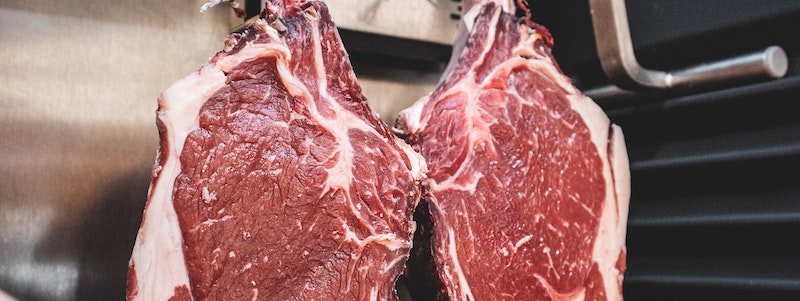Meat and plant proteins are structurally different, however, some can be similar and have common biological effects on our bodies. While meat tends to impact our bodies more, some plant hormones have the same impact. Regardless, our bodies use them as an energy source and they don’t need to necessarily be feared!
The issue is usually with added hormones. In the pork and poultry industries, added hormones are not allowed. But in the beef industry, they are.
A lot of misinformation exists around added hormones. You may not want them in your beef, and that’s your preference, so this post is not meant to drive you to change your consumer habits, but rather to provide correct information. Not all producers use this technology, but it doesn’t mean it’s bad. Diversity in agricultural practices is good, and not every producer can or should do things the same.
Small pellets(implants) are placed under the skin in the animal’s ear. This promotes growth in small levels which help the animal be more efficient with their feed, allowing the animal to be ready for processing sooner.
The Food and Drug Administration has strict oversight on this practice. Veterinarians and research have shown this practice to be safe.

AgWeb.com published a piece on this stating the numbers of estrogenic activity in implanted beef versus other forms of protein:
“Beef from a non-implanted steer contains .85 units of estrogenic activity per 3 oz. serving, while beef from an implanted steer contains 1.2 units of estrogenic activity in a similar size serving…the same quantity of eggs would provide 94 units of estrogenic activity and a 3 oz. serving of tofu would provide 19,306,004 units of estrogenic activity.”
The University of Minnesota Extension states how this practice has helped our sustainability:
“More than 20 countries use these hormones regularly and have reduced GHG emissions, energy use, water use, and reactive nitrogen loss of beef production in comparison to beef raised without growth-promoting hormones. Consumers should also be aware that, when they eat meat, residues of the natural hormones are rapidly excreted and have little to no impact on human biology.”
When it comes to topics like this, we tend to be “fed” scary information without context. Advocates exist to help spread the truth about these topics and ease your mind about your food- food isn’t a monster, and science isn’t evil.
*Original post made on Girls Eat Beef Too, ran by Markie Hageman







